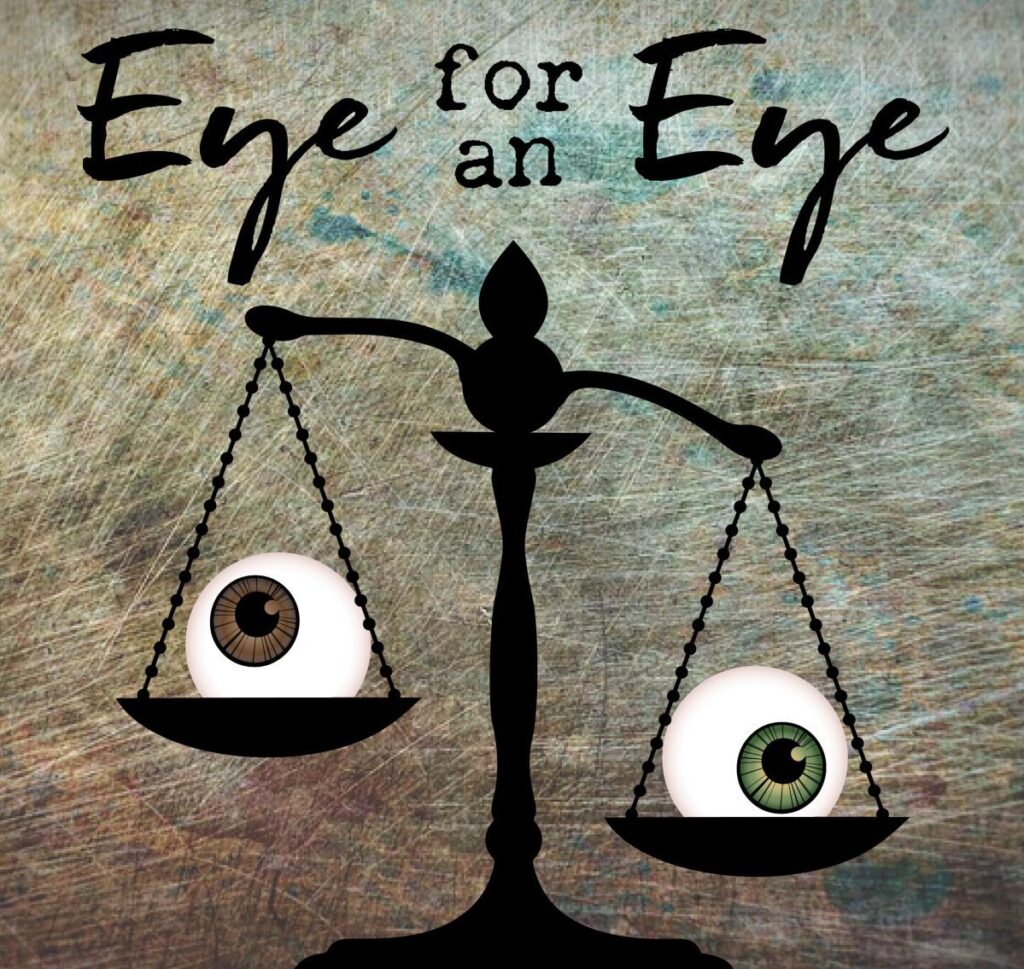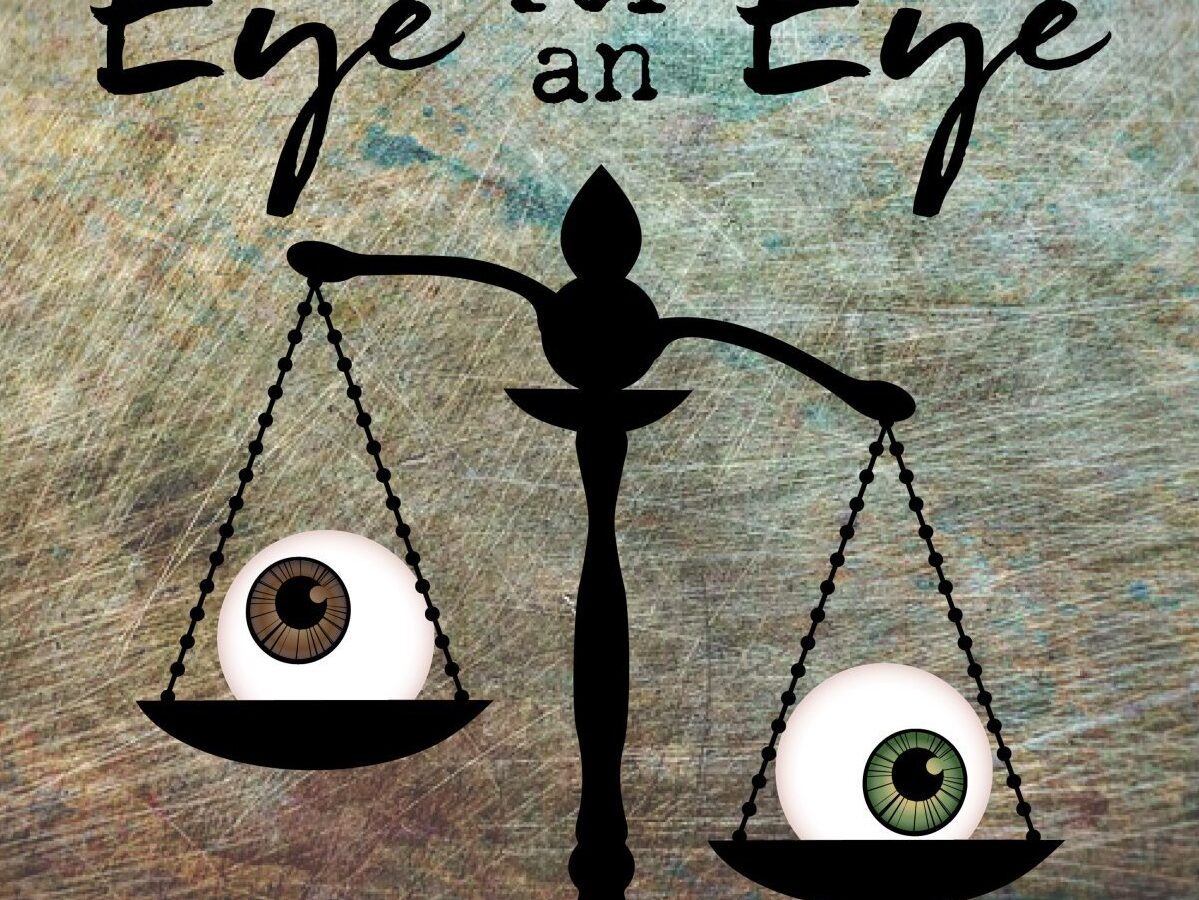Why did the Bible say eye for an eye?
What did the Bible mean by Eye for an Eye?
What is the Christian view on revenge and justice?

Understanding the Meaning and Context of the Biblical Principle – “Eye for an Eye.”
The phrase “eye for an eye” is one of the most quoted—and often misunderstood—statements in the Bible. Found in both the Old and New Testaments, it is often associated with justice and retribution, and has sparked debates around justice, revenge, and morality. But what does it really mean? Why did the Bible say “eye for an eye”? Let’s explore the origin, context, and deeper theological significance of this ancient law – in this article.
The Origin of “Eye for an Eye” in the Bible
The phrase “eye for an eye” comes from the concept of lex talionis (Latin for “law of retaliation”). It was a legal principle found in ancient Near Eastern cultures and adopted in the Old Testament, specifically Exodus 21:24, Leviticus 24:20, and Deuteronomy 19:21, to ensure that punishment was proportional to the offense.
“Why Pray”: Understanding the Purpose and Power of Prayer in the Christian Faith
“But if there is serious injury, you are to take life for life, eye for eye, tooth for tooth, hand for hand, foot for foot.”
— Exodus 21:23–24 (NIV)
It was part of the Mosaic Law given to the Israelites. This principle ensured that punishment matched the crime, preventing excessive vengeance.
In ancient times, tribal conflicts often led to escalating cycles of revenge. The “eye for an eye” principle was revolutionary for its time, as it limited punishment to be proportionate to the offense. For example, if someone caused harm, the penalty would not exceed the damage done, promoting order and fairness in society.
The “eye for an eye” rule was about fairness, not cruelty, in ancient biblical justice.
The Purpose: Justice, Not Revenge
Many people interpret “eye for an eye” as a call for vengeance, but its original purpose was to limit retaliation, not promote it. In ancient societies, personal revenge often escalated into cycles of violence. This law introduced measured justice under judicial oversight.
- It served as a deterrent against excessive punishment.
- It established a fair legal framework for resolving disputes.
- It protected both the victim and the accused by ensuring justice was carried out by the community—not by personal vendetta.
Jesus’ Teaching: A Shift from Retribution to Grace
In the New Testament, Jesus referenced “eye for an eye” during the Sermon on the Mount, offering a revolutionary interpretation.
Lessons From The Life Of Joseph: How God Transforms Adversity
“You have heard that it was said, ‘Eye for eye, and tooth for tooth.’ But I tell you, do not resist an evil person. If anyone slaps you on the right cheek, turn to them the other cheek also.”
— Matthew 5:38–39 (NIV)
Jesus wasn’t contradicting the Old Testament; He was addressing the misuse of the law for personal revenge. His teaching elevated the conversation from legal justice to spiritual maturity, calling His followers to respond with forgiveness, patience, and love.
How Should Christians Apply This Today?
While “eye for an eye” was part of the Old Testament legal system, Jesus’ teachings in the New Testament guide Christians toward forgiveness and compassion, showing that Personal retaliation is discouraged in the Kingdom of God. Instead of seeking retaliation, Christians are called to a higher ethic—responding to wrongdoing with grace, not vengeance, to love their enemies and pray for them (Matthew 5:44). As Christians, we must learn to balance justice with mercy in your daily interactions, following Jesus’ example.
Romans 12:19 says it clearly:
“Do not take revenge, my dear friends, but leave room for God’s wrath, for it is written: ‘It is mine to avenge; I will repay,’ says the Lord.”
What Does Love Your Neighbor Really Mean Today
Conclusion: A Shift from Retribution to Redemption; From Justice to Mercy
The phrase “eye for an eye” was a step toward civil justice in its historical context—but Jesus pointed us to something greater: mercy, forgiveness, and love. While the law ensures order, grace transforms hearts. As Christians, we are called to reflect God’s justice tempered with compassion and rooted in righteousness.
How do you balance justice and mercy in your life? Share your thoughts in the comments box below.
How To Trust God When Life Hurts
Last modified: June 2, 2025






